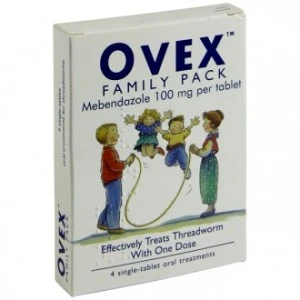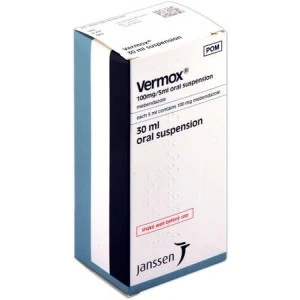Threadworms
Threadworms are small, parasitic worms which are common among children below the age of 10.
Despite the notoriety of worms, threadworms are relatively easy to treat and can often be avoided by maintaining good personal hygiene.
What are Threadworms?
Threadworms, named after their thread-like appearance, are parasitic worms that infect the large intestines of humans. Also known as pinworms, this parasite is common in the UK and particularly prevalent in children under the age of 10.
The prevalence rate of threadworms among British children is believed to be as high as 50%.
While threadworms are often spread through poor personal hygiene, it's essential to be aware that they can affect anyone from any socio-economic background.
The eggs can survive for up to 2 weeks, residing under fingernails, on clothing articles, children's toys, in bedding or on pets - though it's important to note that threadworms do not infect pets. However, pets can carry the eggs, which can then be transferred to human hands when they are stroked.
Eggs can also become airborne if infected clothes or bedding are shaken. Threadworm infections can also result from household dust.
Maintaining a high standard of hygiene while treating threadworms is important, as it is very easy to infect others or become reinfected by contaminated surfaces.
The life cycle of threadworms
Threadworm eggs are ingested through the mouth. They hatch in the small intestine, and the larvae which are spawned grow at an exponential rate. They migrate to the large intestine, undergoing a moulting process.
The parasites leech off of glucose (sugars) in the intestines.
Once they reach the ileum, the largest part of the small intestines, the male and female worms mate, after which the male worm dies and is expelled from the bowels through defecation. The pregnant female worm travels through the large intestine towards the rectum.
The female worms leave the body through the anus to lay eggs on the skin around the anus, providing the eggs with the oxygen they need to develop.
After laying the eggs, the female usually dies. Larvae can hatch on the anus and re-enter the host, causing further infection.
This process is repeated when the eggs are ingested.
Signs of a threadworm infection
It is not uncommon for a threadworm infection to go unnoticed, as it may not cause any symptoms (asymptomatic). Though there are some signs to look out for if you suspect you or your child is infected with threadworms:
- Changes in appetite
- Irritability in children
- Itching around the anus (especially at night)
- Itching around the vagina
- Restlessness or insomnia
- Small thread-like worms (approximately 1cm long) around the anus or in stools
A threadworm infestation can be confirmed through analysis of a provided sample. A piece of tape is placed over the skin around the anus to catch eggs. The strip of tape is then examined under a microscope to confirm the presence of threadworm eggs.
Alternatively, a swab from under the fingernails or around the back passage may be taken and examined to confirm the presence of threadworm eggs.
How is threadworm treated?
Fortunately, threadworm infections pose little long-term health threat and are easily treated with over-the-counter medications.
Threadworm infestations are typically treated with an anthelmintic (antiparasitic) medicine known as mebendazole.
Mebendazole, the active ingredient of Ovex and Vermox, works by preventing the worms' ability to absorb the sugars they need to survive. This starves the worms, causing them to die within approximately three days.
In most cases, only one dose of mebendazole is needed to clear the infection, though you may be advised to take a second dose two weeks later to ensure the worms are eradicated and prevent reinfection.
Everyone in the household will be required to take a single dose of mebendazole to ensure every person has been cleared of the worms. Mebendazole is available in flavoured tablets, which can be swallowed or chewed, and liquid suspension (syrup), suitable for children who cannot take tablets.
While the medicine kills the worms inside the intestines, Mebendazole does not kill the eggs which may have been laid. For this reason, a strict cleaning regime should be implemented to prevent further infections.
If, after two weeks, you or your child continues to experience symptoms of threadworms, you should seek advice from your doctor.
How to prevent threadworms?
Threadworms are very difficult to avoid, though there are a number of preventative measures you can take to protect yourself and your family.
Everyone in your household should be informed about the risks of infection and maintain strong personal hygiene. You should avoid sharing towels and utensils until the infection has been cleared.
Hand hygiene
Encouraging children to wash their hands with antibacterial soap every time they use the toilet and before eating can help reduce the risk of further contamination in the home. You should also discourage children from biting their nails and sucking their thumbs, as these can spread eggs from their bottom to their mouth.
Showering and bathing
Showering or bathing in the morning will minimise the risk of spreading eggs. Each household member should refrain from sharing towels and flannels. Avoid co-bathing, as this can increase the risk of the infection spreading.
Clean bedrooms
Take care when cleaning bedrooms, as disturbing bedding by shaking it can cause the eggs to be spread to other surfaces. Bedrooms should be cleaned regularly. Wipe down surfaces with a damp cloth and vacuum carpets regularly.
Wash fabrics
Bedding, towels, pyjamas, underwear and other surfaces which may be contaminated with eggs should be washed at a high temperature to prevent the spread of the infection.
Pets
Pets may also need to be washed to remove any eggs, which may have been transferred to their fur. No veterinary treatment will be required for pets because threadworms do not infect animals.
Buy threadworm treatment online
Threadworm treatments are available from our UK-registered pharmacy and are eligible for a fast, next-day, discreet delivery service. Orders approved before 3pm on weekdays are dispatched the same day.
Our doctors are available to assist you with any questions you may have about your condition or treatment.
Authored & Reviewed By

Mohamed Imran Lakhi
MPharm - Lead PharmacistPublished on: 19/09/2019 Reviewed on: 28/04/2023
© 2013 - 2025 Al Muhsineen Limited. All Rights Reserved. Registered Pharmacy: 34 Halliwell Road, Bolton BL1 8RL. Registered Office: 254 First Floor, Shearbrow, Blackburn, England, BB1 8DS








